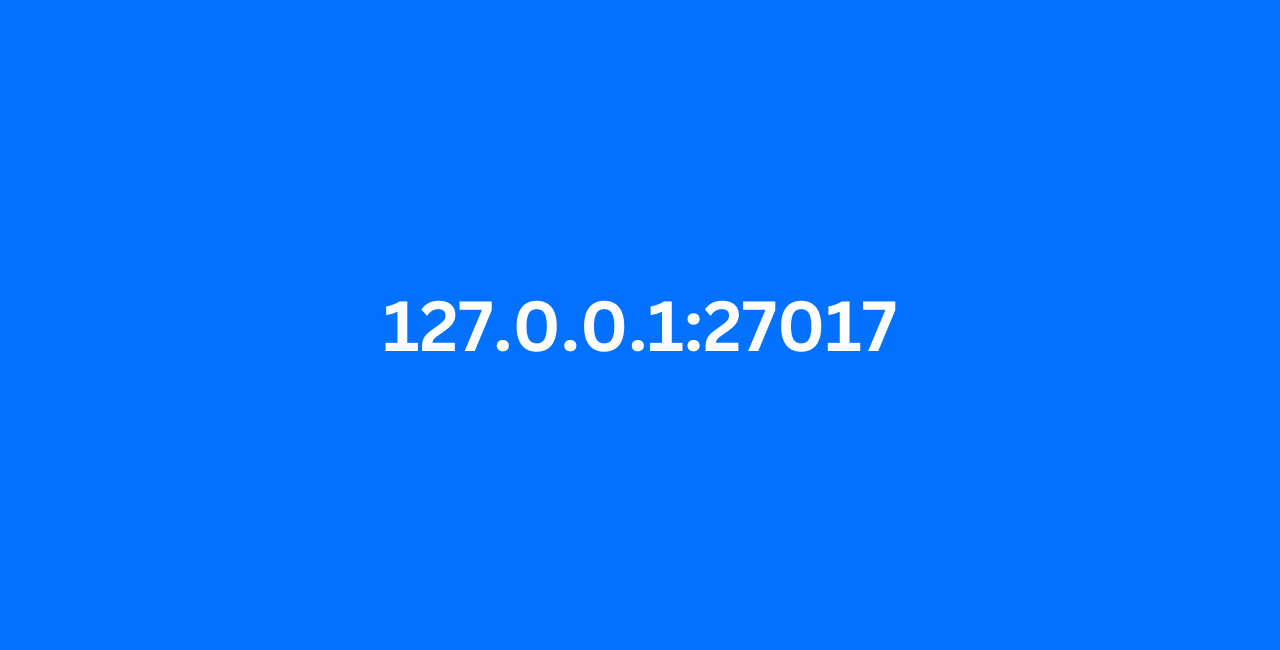Introduction
When it comes to understanding the intricacies of computer networking and database management, certain terms and codes can seem like a foreign language. One such enigmatic code is 127.0.0.1:27017. In this article, we will delve into the world of IP addresses, ports, and MongoDB to unravel the mystery behind this code.
What is 127.0.0.1?
127.0.0.1 is a special IP address known as the “loopback address” or “localhost.” It is a reserved IP address that points to the local machine, essentially referring to the device itself. When a computer or device sends a request to 127.0.0.1, it is communicating with itself, allowing for testing and development without affecting external networks.
What is Port 27017?
Ports are virtual endpoints that enable multiple services to run on a single IP address. Port 27017 is the default port for MongoDB, a popular NoSQL database management system. When combined with the loopback address, 127.0.0.1:27017 creates a unique address that allows MongoDB to listen for incoming connections on the local machine.
Read More: Unlocking the Secrets of 127.0.0.1:57573: A Comprehensive Guide
Understanding MongoDB
MongoDB is a document-oriented database designed for scalability, flexibility, and high performance. It stores data in JSON-like documents, making it a popular choice for modern web applications. By default, MongoDB listens for connections on port 27017, allowing developers to interact with the database using various tools and drivers.
Use Cases for 127.0.0.1:27017
- Local Development: Developers use
127.0.0.1:27017to test and develop MongoDB-based applications on their local machine, ensuring that changes do not affect production environments. - Testing and Debugging: The loopback address and port combination enable developers to test MongoDB connections, queries, and performance without affecting external networks.
- MongoDB Shell: The MongoDB shell uses
127.0.0.1:27017to connect to the local database, allowing developers to execute commands, queries, and scripts.
Read More: Unraveling the Mystery of 127.0.0.1:49342: A Comprehensive Guide
Security Considerations
While 127.0.0.1:27017 is a powerful tool for local development and testing, it also poses security risks if not properly configured. To ensure security:
- Firewall Configuration: Restrict access to port
27017to prevent unauthorized access from external networks. - Authentication and Authorization: Enable MongoDB authentication and authorization mechanisms to control access to the database.
- Regular Updates: Regularly update MongoDB and dependent packages to prevent vulnerabilities.
Conclusion
In conclusion, 127.0.0.1:27017 is a unique address that unlocks the power of MongoDB on the local machine. Understanding its components and use cases is essential for developers, testers, and security professionals. By leveraging this knowledge, you can harness the full potential of MongoDB while ensuring the security and integrity of your applications.
Read More: Unlocking the Secrets of 127.0.0.1:62893: A Comprehensive Guide
FAQs
Can I change the default port for MongoDB?
Yes, you can change the default port by modifying the MongoDB configuration file or using command-line options.
Is 127.0.0.1:27017 accessible from external networks?
No, the loopback address is only accessible from the local machine, ensuring that external networks cannot access the MongoDB instance.
What happens if I expose 127.0.0.1:27017 to external networks?
Exposing the loopback address and port to external networks can lead to security vulnerabilities and unauthorized access to your MongoDB instance.










